- Home
- Steve Vernon
Tales From The Tangled Wood: Six Stories to SERIOUSLY Creep You Out Page 2
Tales From The Tangled Wood: Six Stories to SERIOUSLY Creep You Out Read online
Page 2
After I buried my father, I took the heart that my carefully aimed spear had pierced and marinated it in a basting of bear blood, a pepper of dirt and a rinse of boy tears. I could see my father’s face, hiding in the tough-skinned meat, talking to me as I rendered it down in the fat and the fire, telling me every last story that he’d ever told me, repeating them all one by one.
I rubbed the heart with oil and I browned it in a black iron pan, and as I rubbed the heart I heard my father singing in the meat. His voice had never sounded quite so tender. I ate the meat whole to give me courage, but my father’s heart broke like an eggshell in my mouth, and the meat was empty and tasted of shadow’s sorrow and the long echoing song of shame.
I should have eaten the bear’s heart but it was never mine to claim.
I chewed the meat, careful and slow.
My father’s heart tasted of loneliness, and sitting here on this game trail with this small girl, waiting for the arrival of an even smaller deer, I could taste it again as if I had slain the old man but a yesterday ago, and perhaps I truly had. Time is a river that runs through a lonely half-told joke of a dream. We never remember things quite the way that they happened.
*
I slew the deer with a single arrow.
I had learned the archer’s craft since that first time that my spear had failed me. Age and cunning had taught me that it was better to riddle your hunt with a dozen tiny arrow heads rather than lose the kill on a single poorly thrown spear cast.
My father would have sneered at the thought of his son using such a pathetic weapon. As far as he was concerned a bow was a weapon fit only for women and children.
“A bow and arrow is a spear that has forgotten how to grow real meat,” my father would often tell me. “It is fine for shooting birds or fish, but if you want to hunt find your spear and learn how to throw.”
The deer sprang up, as sudden as a slept-through sunrise, a burst of life and revelation springing from out of the deep green woods. I caught the deer with my first arrow, and before it slumped to the dirt I feathered it with two more fast shots. The meat would taste just as sweet as if I had speared it with a man’s tool.
I drew my knife and I sliced the deer open, catching and cutting out the still beating heart. The deer’s eyes glazed to cold charcoal, all gleam fading into a dirty color that spoke of nothing but surrender and regret. I felt the heart beat its last few notes of farewell in my red stained hands.
“I will take this back to the Queen,” I told the girl. “Being a city woman she won’t know the difference between a deer heart and a girl’s heart.”
The girl looked up at me with some surprise.
This was the first time that I had spoken of my orders and it frightened her more than a little bit.
And that was when the little dwarves found us.
“What are you doing in our woods, ranger?” a rough toned voice spoke above me.
I felt an iron spear tip pressed hard against my back, and my eyes opened wide with their own particular kind of surprise.
*
“Life will always surprise you,” my father had told me once. “Death is the only thing a ranger needs to be truly ready for.”
We were sitting beyond the sight of the great bear’s cave, readying ourselves for my father’s last surprise. He had not lit the fire yet and there was time for me to remember his words.
“Every morning that you awaken to hear the hunter’s drum beating deep within your chest is a morning to celebrate,” my father said to me. “Death is a hunter in his own right, and from the very first breath that we steal from out of our mother’s womb, we can hear his soft grey footsteps drawing near. Like a thunder of whispers, hush – hush – hush, death walks on soft wet feet.”
And then he lit the fire with straw and green leaves and the smoke covered him and the bear came charging out of the cave and the memory of my father faded like a wisp of cloud caught by a sudden breeze.
*
“Speak, ranger. What do you here in our woods?”
I didn’t turn around at first, not wanting to risk any unnecessary penetration of my backbone.
“I hear nothing,” I said, hoping for a laugh to soften my killer’s intent. “For all that I heard of your approach these ears that I wear on the side of my head might as well have been made out of river stone.”
I felt the edge of the spear head trail along my back and neck moving up towards the hinge of my right ear.
“Your ears are fine,” the voice said.
“For now, at least,” a second voice said from directly in front of me, in a manner that suggested leadership. “For now, until we decide what to do with you.”
I looked up to see another dwarf standing over me, a little man about the size of a good-sized stump. I figured he was in charge, by his bearing and speech. Several other of his like gathered close about me. They all carried short heavy spears, the kind you might use to pin a wild boar. Thick they were and twisty of limb, creatures of gout and tumour, cancered eyes and grey stringy hair that twisted about their malformed ears like a bundle of mating eels.
“The girl is ours,” the leader informed me. “As is the deer.”
“The girl is small,” I replied. “As is the deer.”
The little man shrugged his shoulders.
“As are we,” he said. “Both will do.”
Three of them knelt over the deer and began to feed.
“Come child,” the dwarf-leader said, taking Snow White by her fair hand. “This little hunter no longer knows you.”
He steered her closer to the deer. She did not resist. Two of the other dwarves knelt and pried the carcass wide open.
“He would have killed you,” the dwarf-leader said to Snow White. “As his father killed our kind before him.”
He handed Snow White the deer heart.
“Take it and eat,” the dwarf-leader said. “It is good.”
A deer’s heart is as tough as any, but the girl’s teeth were very sharp. She chewed into the heart’s hot meat, the blood streaming down her chin, and I swear that in that moment I saw the deer’s heart give out one final beat.
“She is not one of you,” I said.
I felt the dwarf-leader’s spear cutting into the back of my neck, and for the first time I thought of how she looked so much like one of those little men. Her eyes, so canny and wide, her gaze so calm and knowing. How could I have not noticed the similarity until now?
“Her father was often away,” the dwarf-leader said. “But she is still one of our own.”
“As was your father,” another added. I stared up at him. Strange, but beneath the twisted ruin of his face I swore I could see my mother’s eyes - smiling and happy and teasing all at once.
“Women are so very hungry,” a third added.
The girl’s eyes hardened into broken glass. She looked at me and growled. It was a low growl, the kind that might be made by a dog run feral and then I felt a single drum beat, the butt of a hunting spear brought down hard against the cave of my skull, and I rolled my eyes backwards into the darkness and all was silent and still.
I slept for a time, dreaming of women with mouths like wolves.
*
I awoke alone in darkness.
My father was standing above me. He was made of moonlight and viscera and smoke and old sorrows, nothing more than fine thin lines wavering before me. Not a ghost, not a dream, but something found in the vague grey spaces that swim in between.
“Why do you lie here in the dirt?” the memory of my father asked.
I felt his words more than hear them, a cool midnight breeze tickling down the harp song of my ribcage.
“Awaken, and follow the drum,” he told me.
I heard a drum beating in the darkness. The whole dark north forest seemed to reverberate to the drum’s insistent pounding rhythm. The drum of the night was calling me out into the darkness and I followed it. Through the winding of the tree trunks and the paths that rivered an
d trickled through the underbrush, until I came to a place that I hadn’t stood at since the last time I’d seen my father.
I followed and I found myself at the great bear’s cave.
The cave stood before me, as wide open as the bear’s maw, long slow breaths of cool breeze haunting out from between the teeth of the rocky hole.
“This is where the night is born,” the memory of my father told me. “Dark grows deep within this cave.”
I could feel the breath of the cave within me, my lungs moving in rhythm with its dark throbbing exhalations. In, out, in, out, the waters of memory flowed from out of that cold darkness. Somewhere deep within that cave I was certain I could see the flicker of a campfire. There were shapes, distant and vague, poured around the circle of the campfire. Something told me I should not draw near.
“The ghosts of stories long forgotten sit around the campfire of night, telling stories to each other,” the memory of my father explained to me. “Listen and you might learn something.”
I listened to them and I heard their words. The voices talked of the little men who lived in the woods and ran with the moon and ate dead flesh. They talked of how the moon danced with the sea. They talked of the sound of blood and the memory of meat. And lastly and most importantly, they talked of how the dwarves might be destroyed.
“Dig my bones up,” the memory of my father told me. “They will tell you what to do.”
And so I dug in the dirt beneath the skull of the cave bear, using the stump of my father’s broken spear as a gouging crude shovel. It was hard work, made harder by the fact that the memory of my father would not shut up.
Some things never change.
“You dig like a little girl,” the memory of my father told me. “I have seen dead rabbits with more muscle than you.”
“Shut up,” I told him. “You never loved me since I was born.”
“What do you know about love, boy?”
“I loved my mother.”
“You loved a made up memory,” he said. “You never saw her for what she truly was.”
“Where were you when I needed you to tell me you were proud of me?” I asked. “Where were you when I needed to be held?”
“The grave will hold you soon enough,” The memory of my father told me. “As for pride, that is nothing more than the wind that blows through empty men’s skulls.”
“What do you mean?”
“Why ask me?” the memory of my father said. “I am nothing more than a memory, a puppet you move with your mind and your mouth.”
I looked again and he was gone.
*
By the time the embers of tomorrow’s sunrise were winking over the ashes of last night’s twilight I had finished digging up my father’s bones. I removed the bag of silver, now tattered and wormed and rotted straight through, the tarnish of the coins completely obscuring the remembered gleam.
I pulled his bones out, one by one, laying them across each other like I was making a fire. His bones were dry and would make a fine kindling. I remembered watching him build his own final fire in the very same manner, that day when we hunted the great bear.
I kindled the flames, working them from the heart of a handful of dry straw, catching a few dead twigs, and finally leaping to the bones. The flames licked and lapped about the dry rotting bones.
I remembered watching as my father went down beneath the bear. I remembered running at him, my hunting spear held over my head, hard, with all of my muscles coiled behind it. I remembered taking careful aim. That was the thing I most remember, the carefulness with which I had taken my aim. How could I have missed?
Or had I?
I covered my doubt with a flurry of effort, working hard at my task. It took a long time to melt the silver down in my old cooking pot. It took longer to coat my father’s hand axe with the molten silver.
I spent the day, resting up. I made a soup out of the few bones that had escaped the fire.
And then I rested and while I rested I dreamed of my mother standing in the heart of her kitchen, hacking up potatoes and turnips and carrots for a hunter’s stew.
“Your life is a stew pot, boy,” my mother had told me. “There is no telling what will get tossed into the pot. A few tears, a few loves, hatred and hunger and hard living. All of it goes into the pot, and in the end it is nothing more than potage. Simple peasant soup.”
The hacking sound of her cleaver, hammered as hard and as regular as clockwork. A secret smile brewed in the corner of her mouth, like a promise that she would always be there for me.
She lied.
I awoke, feeling clean, and prepared to go hunting little men.
*
I caught the first dwarf rooting through an owl’s nest, fishing his thick grey taloned fingers into the dust dry grass of the nest. I took the hand off at the wrist, and then brought the silver axe across the dwarf’s throat. Afterwards I cut the dwarf’s heart out and chewed it like a green sour apple. I peeled his face with my skinning knife and then I made myself a mask.
I’m not sure what I was hoping to accomplish with the making of this mask. I believe a part of me was hoping that I could see through the dwarf’s eyes. I don’t know if it worked.
All I could see was a deep haze.
The moon hung overhead like a round silver lantern. I found the second dwarf baying beneath a rotting chestnut tree. I split his head wide open and carved out his heart and sewed myself a necklace out of the sinew of his leg.
From the third I stitched a drum and I beat upon it with a baton fashioned from his arm bone. It had a nice sound for dwarf skin, rather soothing like a drop of rain falling upon the sounding board of a closed oak coffin.
And in time I found the little men’s home. It was nothing more than a shantied hut, a low and foul thing rooted in the dirt. As I drew closer I could see that the walls were woven of worms and twisted bone and wind-dried sinew. The hut seemed to breathe, heavy and wet exhalations, and a foul stink lay all about. The door opened, like a mouth, and four of the little men ran out brandishing their sharp little hunting spears.
“Come and die,” I told them.
I caught the first with my hand axe, shivering the shaft of his spear and jarring him just long enough to take off his head. A second rushed at me, but I stepped aside and tripped him. Before he could get up to his feet I shattered his shoulder. The blood that oozed out looked a little like some sort of foul tree sap.
And then she stepped out of the hut. Or rather she stepped through the hut, passing through the foul wet walls like a woman walking through a curtain. She had grown even older now. Her eyes were hard and knowledgeable. A crown of crow beak and bramble heart wound about her skull. The surviving pair of dwarves stood at her side like ugly bookends.
“You have wandered long and far, my huntsman,” she said to me. “The deep north woods have eaten your memories like the rains of April eat the hard March snow.”
She stepped closer.
I didn’t know what to do.
A part of me wanted to cut her open.
A part of me wanted to embrace her.
“And now you have finally come to the place where everything once began,” she said.
Then she reached out and took the hand axe from me.
For some strange reason I could not resist.
“Let me save you the trouble,” she told me.
She drew the axe blade down the front of her chest and her stomach. Her skin opened like a gaping picnic basket and from out of her open wound stepped five more little men.
“I require a complete retinue,” she said. “Seven in all – but you, however, have become superfluous.”
She continued to step forward until it seemed as if she would walk completely through me, as if I were nothing more than a random splash of moonbeam. I fell backwards, or rather I sank. My knees turned to water. The dirt beneath me softened into a bog.
“Look above you,” Snow White said. “There hangs your mother.”
&
nbsp; I looked overhead and I could see the skeleton dressed in the garb of an old woman, dangling in the branches of a sour apple tree.
“The roots of the forest run long and deep,” Snow White said. “And none can guess their birthing place.”
She smiled at me. It wasn’t the least bit pretty, but I could not take my eyes away.
“You will deliver a message for me,” the woman whom I knew as Snow White said to me. “You will know it by heart.”
She swung the hand axe down at my chest and I felt myself split open as if I were nothing more than a peculiar kind of book. She reached into my chest and drew out my heart and reached up high above her head, as dainty as any toe-dancing courtesan. She placed the ugly red fruit of my heart into the cage of the old woman’s dangling bones and there it blossomed into a fat red rose, nestled within a dirty ivory bird cage. The apple blossoms sprung about it, and long fleshy vines wound out and the old woman’s skeleton quickly filled itself in.
If I looked at her with one eye she was the spitting image of Snow White’s mother, but if I squinted through the other she looked like my own, whom I could not remember.
“History will blame her,” Snow White said. “Not you. No one will ever remember the Hunter. You are nothing more than a forgotten footnote on the page of obscurity.”
The Queen’s apple-doll danced a nasty little jig in the branches and then leaped down to alight upon the dirt with a foul and twisted curtsey.
“Go and take an apple to my Mother the Queen,” Snow White said to the apple-doll. “Push it down her throat until her face turns as blue as the sky. Bury her in the deep north woods and watch as seven tall apple trees sprout from within her festered heart.”
I caught her eye, daring to speak.
“I thought that you told me that she wasn’t your mother,” I said.
“Shh,” Snow White said, leaning down towards me, her opened torso gaping like a fat hungry mouth. Our wounds met together like a fat and fetid kiss. I felt things inside of her mingling inside of me.

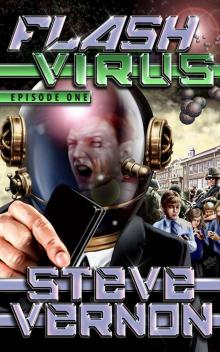 Flash Virus: Episode One
Flash Virus: Episode One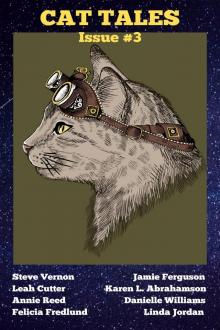 Cat Tales Issue #3
Cat Tales Issue #3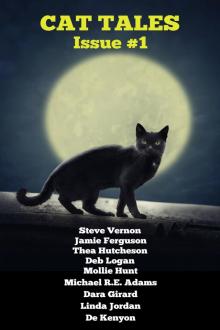 Cat Tales Issue #1
Cat Tales Issue #1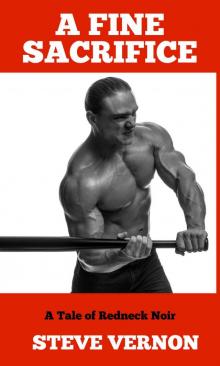 A Fine Sacrifice
A Fine Sacrifice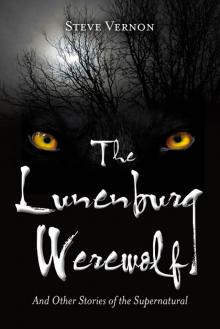 The Lunenburg Werewolf
The Lunenburg Werewolf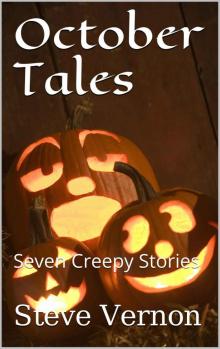 October Tales: Seven Creepy Stories (Stories to SERIOUSLY Creep You Out Book 1)
October Tales: Seven Creepy Stories (Stories to SERIOUSLY Creep You Out Book 1)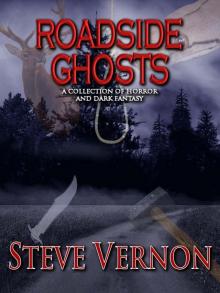 Roadside Ghosts: A Collection of Horror and Dark Fantasy (Stories to SERIOUSLY Creep You Out Book 3)
Roadside Ghosts: A Collection of Horror and Dark Fantasy (Stories to SERIOUSLY Creep You Out Book 3)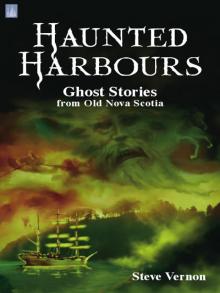 Haunted Harbours
Haunted Harbours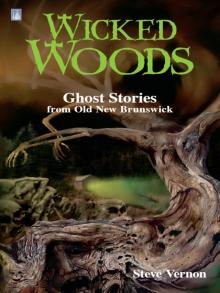 Wicked Woods
Wicked Woods Two Fisted Nasty: A Novella and Three Short Stories (Stories to SERIOUSLY Creep You Out Book 2)
Two Fisted Nasty: A Novella and Three Short Stories (Stories to SERIOUSLY Creep You Out Book 2)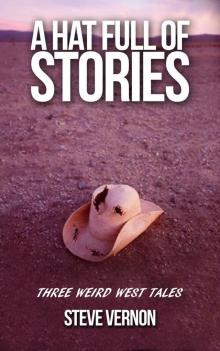 A Hat Full of Stories: Three Weird West Tales (Stories to SERIOUSLY Creep You Out Book 9)
A Hat Full of Stories: Three Weird West Tales (Stories to SERIOUSLY Creep You Out Book 9)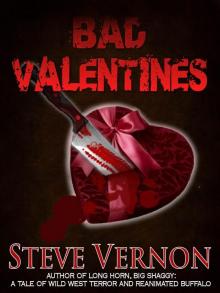 Bad Valentines: three twisted love stories (Stories To SERIOUSLY Creep You Out Book 7)
Bad Valentines: three twisted love stories (Stories To SERIOUSLY Creep You Out Book 7)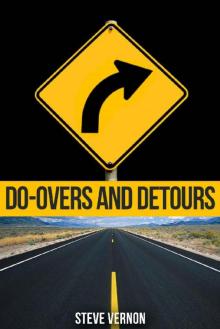 Do-Overs and Detours - Eighteen Eerie Tales (Stories to SERIOUSLY Creep You Out Book 4)
Do-Overs and Detours - Eighteen Eerie Tales (Stories to SERIOUSLY Creep You Out Book 4)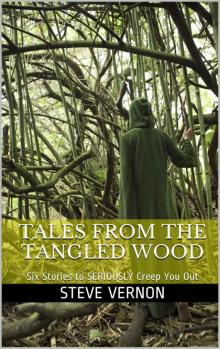 Tales From The Tangled Wood: Six Stories to SERIOUSLY Creep You Out
Tales From The Tangled Wood: Six Stories to SERIOUSLY Creep You Out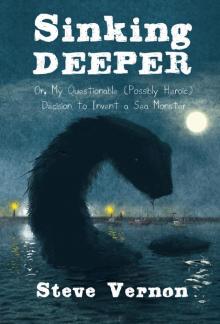 Sinking Deeper
Sinking Deeper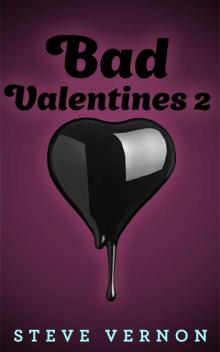 Bad Valentines 2: Six Twisted Love Stories (Stories to SERIOUSLY Creep You Out Book 5)
Bad Valentines 2: Six Twisted Love Stories (Stories to SERIOUSLY Creep You Out Book 5)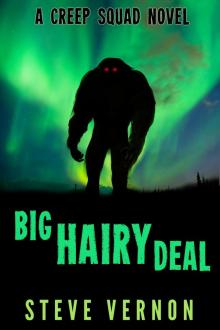 Big Hairy Deal
Big Hairy Deal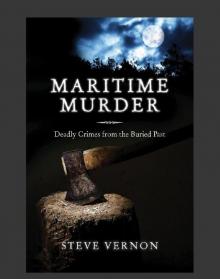 Maritime Murder
Maritime Murder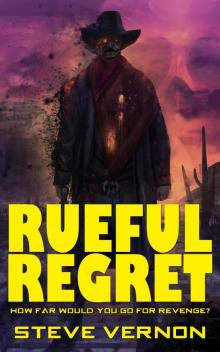 Rueful Regret
Rueful Regret